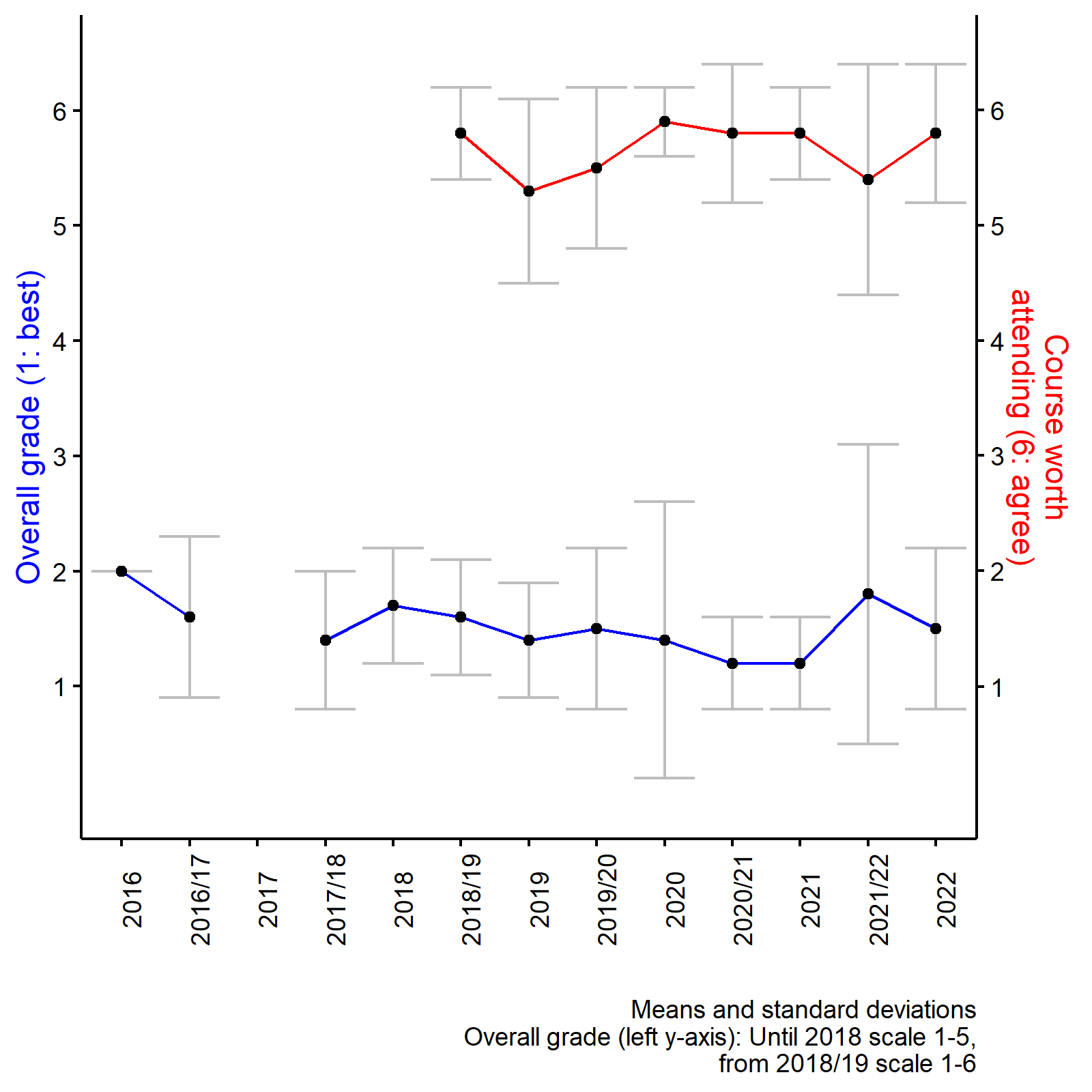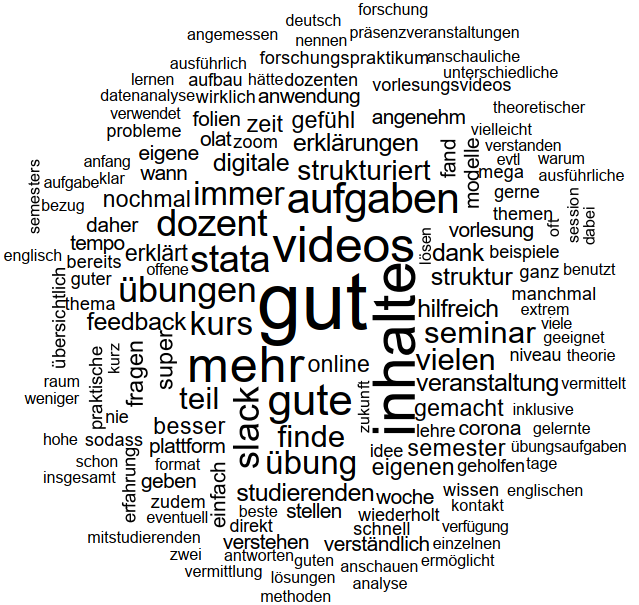Teaching
I specialize in teaching courses focused on quantitative methods and research design to social science students. My teaching portfolio spans several years and includes experience at multiple institutions and in diverse educational formats. The student evaluations showcased below reflect the consistent positive reception of my courses.
I have provided a curated list of courses below, accompanied by a brief overview of my teaching experience. For a collection of my teaching repositories, please visit Czymara Courses.
Open-access Full Courses and Research Trainings
Computational Social Science
This full-semester course provides an introduction to computational social science and equips students with the skills to analyze large datasets, apply machine learning models, and use natural language processing for text analysis. It covers the full pipeline of computational data analysis, from data collection and preprocessing to data analysis and interpretation - all based on publicly available data. The course materials are openly accessible in this GitHub repository.
Longitudinal Data Analysis
I am regularly teaching on the analysis of longitudinal data in R, including a full semester research training or a condensed two-day summer school course (note: the materials are currently offline). Both formats include lectures and practical tutorials. This course introduces the essential tools for analyzing panel data in the social sciences to assess trends over time and explore causal relationships. Participants learn to manage panel data workflows in R, covering data sourcing, preparation, and analysis techniques.
Multilevel Modelling
My comprehensive research training Comparative Social Research with Multi-level Modelling in R is fully available in open access. The curriculum is structured around data from the European Social Survey, with 15 sessions, each including a 90-minute lecture and a 90-minute tutorial, providing a balance of theoretical grounding and practical application. This course offers a thorough, hands-on approach to comparative social research, covering both introductory and advanced multilevel modeling.
The materials for the course are also available in Stata. Write me an email if you are interested.
Open-access Short Courses
Introductions to R and Python
If you’re interested in mastering the basics of R and Python, I’ve created interactive Colabs to help you build an intuitive understanding of R’s core logic and essential functions, along with their Python. equivalents.
Topic Modelling
My workshop Topic Modelling in R and Python, part of the Workshops for Ukraine series, is freely accessible. You can find the workshop slides here. For a hands-on experience, explore the interactive Colab notebooks: the first Colab focuses on R implementations, the second covers Python applications. These materials provide practical guidance for applying topic modeling techniques in both R and Python, using real newspaper texts as examples.
Evaluations

- Winter 2024/25: Computational Social Science
- Oct 2023: Workshops for Ukraine: Introduction to Topic Modelling in R and Python
- Aug 2023: DeZIM Summer School: Einführung in die Panelregression
- Jul 2023: BIGSSS Summer School on Computational Social Science of Democratic Debate: Topic Models
- Summer 2022: Längsschnittdatenanalyse in R
- Winter 2021/22: Vergleichende Sozialforschung mit Mehrebenenmodellen in R
- Aug 2021: Frankfurt Digital Summer School: Multilevel Analysis
- Summer 2021: Lägsschnittdatenanalyse und Kausalität
- Winter 2020/21: Längsschnittdatenanalyse und Kausalität

- Summer 2020: Längsschnittdatenanalyse und Kausalität
- Winter 2019/20: Vergleichende Sozialforschung mit Mehrebenenmodellen
- Summer 2019: Analyzing longitudinal data and the issue of causality
- Winter 2018/19: Quantitative comparative social research with multi-level modeling
- Summer 2018: An applied introduction into quantitative comparative social research
- Winter 2017/18: Analysis of cross-sectional data (as tutor)
- Summer 2017: Analysis of longitudinal data (as tutor)
- Winter 2016/17: Analysis of cross-sectional data (as tutor)
- Summer 2016: Analysis of longitudinal data (as tutor)
